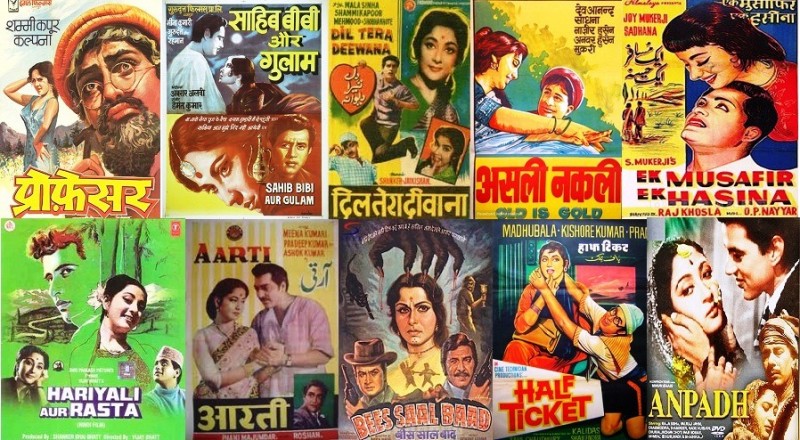
A fundamental shift in storytelling and aesthetics occurred during the 1960s, which turned out to be a crucial decade in the history of Indian cinema. The "New Wave" movement emerged during this time, departing from the typical mainstream cinematic tropes and adding more depth and realism to the stories. The 1960s set the stage for a cinematic revolution that would influence Indian filmmaking in the future as the glitz and glamour of earlier cinematic offerings gave way to more relatable portrayals of the average person.
Escapist stories that had dominated Indian cinema for decades began to fade in the 1960s. In order to explore social issues, human emotions, and the complexities of daily life, filmmakers started to explore more realistic themes. The "New Wave" movement sought to portray society's unvarnished truths in order to provide audiences with a mirror in which to examine their own struggles.
In a way that was previously unheard of, 1960s movies explored societal issues and human experiences. A new level of social consciousness was introduced to film by Bengali filmmakers Satyajit Ray, Ritwik Ghatak, and Mrinal Sen, as well as later by Bimal Roy and Guru Dutt. Their narratives dealt with issues like poverty, racial and class divides, rural-urban disparities, and everyday struggles. These movies struck a chord with viewers who recognized themselves reflected on screen, provoking conversations and introspection.
The influential Satyajit Ray film "Pather Panchali" (1955), which he also directed, is frequently cited as the movement's forerunner. A poor Bengali family's daily struggles were depicted in this masterpiece, which captured the spirit of rural life with unmatched authenticity. The "Apu Trilogy" by Ray, which demonstrated the impact of individualized narratives against the backdrop of societal transformations, continued to shape the cinematic landscape of the era.
Guru Dutt also provided poignant insights into the lives of artists and the harsh realities of fame and fortune in his films "Pyaasa" (1957) and "Kaagaz Ke Phool" (1959). By delving into the character's emotional depths and upending the conventional narrative structure, these movies elevated cinema to an art form.
Innovative filmmaking methods were also made more visible by the New Wave movement. By focusing on symbolism, long takes, and natural lighting, filmmakers experimented with visual storytelling. This shift away from the stylized method of earlier decades gave the stories an air of authenticity and allowed viewers to become fully immersed in the lives of the characters.
In India, cinema has long served as a mirror of society, but the 1960s saw a change in that. During this time, filmmakers developed a sense of social responsibility as a result of the discussions that these movies sparked about current events. Class barriers were shattered and discussions about justice and equality were sparked by the realism and emotional depth depicted onscreen.
In today's Indian film industry, the impact of the cinematic revolution of the 1960s is still palpable. In order to encourage a deeper engagement with societal realities, the New Wave movement gave filmmakers the freedom to explore a wide variety of themes and narratives. It opened the door for later generations of filmmakers to incorporate realism, empathy, and social consciousness into their work, enhancing the field of cinema and fostering a stronger bond between it and society.
A transformative movement that brought Indian cinema to new artistic and social heights, the New Wave of the 1960s was more than just a change in cinematic style. We honor the pioneers who dared to defy convention and lay the groundwork for a more real and introspective form of storytelling as we look back on this time period.
Middle East and Africa Fall in Love with Indian Cinema